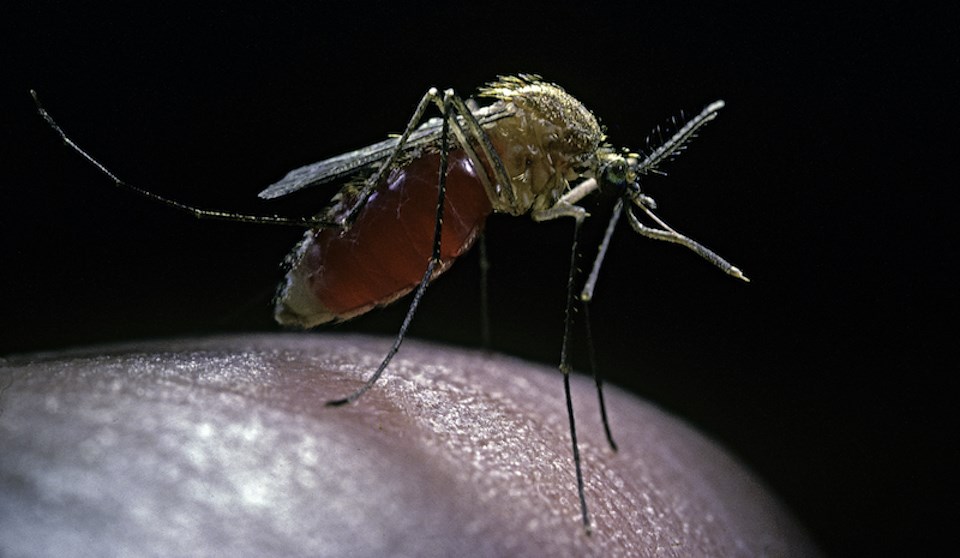Mosquito season might kick off a little bit earlier than expected -- but it might not start with a bang.
Unseasonably hot temperatures in the mid-May Metro Vancouver weather forecast might mean you'll see an early influx of bloodsuckers, according to University of British Columbia (UBC) Zoology Professor Dr. Ben Matthews.
But not all mosquitoes wait until the summertime to lay their eggs.
"We have over 50 known species of mosquitoes in British Columbia," Matthews explained, noting that many of them are around throughout the year. Some of them hibernate through the winter in places like attics and trees, emerging in the spring to feast.
"But that said, there are a lot of the ones that we call 'nuisance mosquitoes' that are reliant on you and those tend to have their own rhythms and preferences that are largely driven by weather."
Many of the problematic mosquitoes hatch in places with standing water when temperatures soar. And while this typically occurs in the summer months, the upcoming heat event will likely be hot enough to cause the eggs to hatch.
"It's usually a combination of a lot of rain and then some hot weather that we look out for in terms of a predictor in a big emergency," Matthews said.
"If it gets too cold at night, the adult [mosquitoes] aren't super happy. And if there's not enough water - if you haven't had rain for a while - then those breeding sites kind of dry up and aren't as much of a problem."
Metro Vancouver weather and mosquito populations
Many mosquitoes lay their eggs above the waterline and they hatch when the snow melts or rivers rise. With many places across the province on evacuation alert due to flooding, many of these populations could hatch during the extreme heat.
But flooding from snow melt typically isn't what causes a massive mosquito influx in the Lower Mainland. Instead, plenty of rainfall followed by extreme heat creates the ideal conditions for a local bloodsucker boom, Matthews clarified.
One thing we could see, thanks to an unusually hot mid-May are adult mosquitoes that we wouldn't normally see until later in summer.
Matthews cautioned, however, we could also find that some mosquito eggs "hold in reserve" for the next big rainfall. Then, he explained, "we get those breeding sites built up, and then the next hot spell we'll get some big emergence of adults again."
Last year, there were a couple of bigger mosquito emergence events at the start of summer. Depending on current weather patterns, it may take some time before there is another major emergence.
How to stay safe from mosquito bites
While West Nile Virus is the most commonly spread vector-borne disease spread in North America, the BC Centre For Disease Control (BCCDC) only confirmed two cases in humans in 2021 and none in 2020.
And while the virus is relatively rare in the province, Matthews noted that it is "always good practice to avoid being bitten."
You can help control mosquito populations by preventing them from breeding or preventing the larvae from developing into adults. You do this by:
- removing standing water which provides breeding sites
- controlling the larvae with an approved product
You can also take the following steps to protect yourself:
- Use a fly swatter to kill mosquitoes in the home.
- Use an approved mosquito repellent with a PCP registration number on the label.
- Read and follow all label directions.
- Wear loose clothes made of tightly woven materials that keep mosquitoes away from your skin, such as nylon or polyester.
- Use mosquito netting when sleeping outdoors or in an unscreened structure. Also use netting to protect infants when outdoors.
- Wear long pants and sleeves as well as shoes and socks. You should do this if you're going to be outside when mosquitoes are most active.
- Fix or replace old and torn screens in doors, windows and vents. Inspect all other possible access points into your home and fix as needed.
Find out more information about mosquito control on the Government of Canada's mosquito page.



